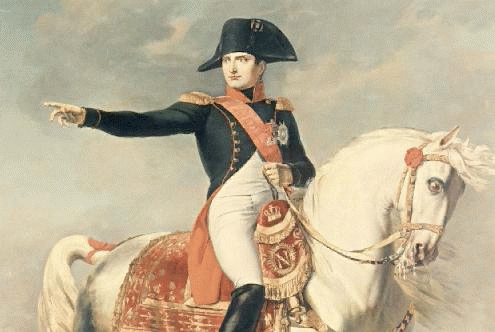Related:
From, "The Mind of Napoleon: A Selection from His Written and Spoken Words," edited and translated by J. Christopher Herold. Columbia University Press: New York. 1955.
"[Conseil d'Etat, 1806] My usual reading fare, when I go to bed, is the old chronicles of the third, fourth, and fifth centuries. I read them or have them translated for me. Nothing is more curious, or less known, than the change from the old way of life to the new, than the transition from the ancient political bodies to the new ones that were founded on their ruins." Pg. 52.
"[Conseil d'Etat, 1802] In every country, force yields to civic qualities. Bayonets are lowered before the priest who speaks in the name of Heaven and before the scholar who inspires respect for his science. I have predicted to certain military men, who had scruples, that military rule will never take root in France, unless the nation were stultified by fifty years of ignorance. All attempts will fail, and their authors will be the victims. I do not govern in the capacity of general but by virtue of the civil qualities which in the eyes of the nation qualify me for the government. If the nation did not hold this opinion, the government would not last. I knew what I was doing when, as army commander, I styled myself "Member of the Institute"; I was sure of being understood by the last drummer boy.
We must not apply the lessons of the barbarian eras to our present times. We are thirty million men united by civilization, property, and commerce. Against this mass, three or four hundred thousand soldiers are nothing. A general owes his command exclusively to his civic qualities; but aside from this, as soon as his active employment ceases, he returns to civilian status. Even the soldiers are merely the sons of citizens. The army means the nation. Looking at the army without taking these relationships into account, one would become convinced that it knows no law but force, that it looks only to its own needs, that it sees only itself. The civilian, on the contrary, sees only the common good. The distinguishing mark of the military is to want everything despotically; that of the civilian is the desire to subject everything to discussion, to the criteria of truth and reason. Each looks through his own prism, which often misleads him. Nevertheless, discussion gives birth to light. If men were classified into military and civilians, the result would be the establishment of two orders, whereas there is only one nation." Pg. 76-77.
"[Conversation, 1800] If I died of fever three or four years from now, in my bed, and if to conclude the tale of my life I made a last will, I should tell the nation to beware of a militarist government: I should advise it to choose a civilian magistrate." Pg. 77.
